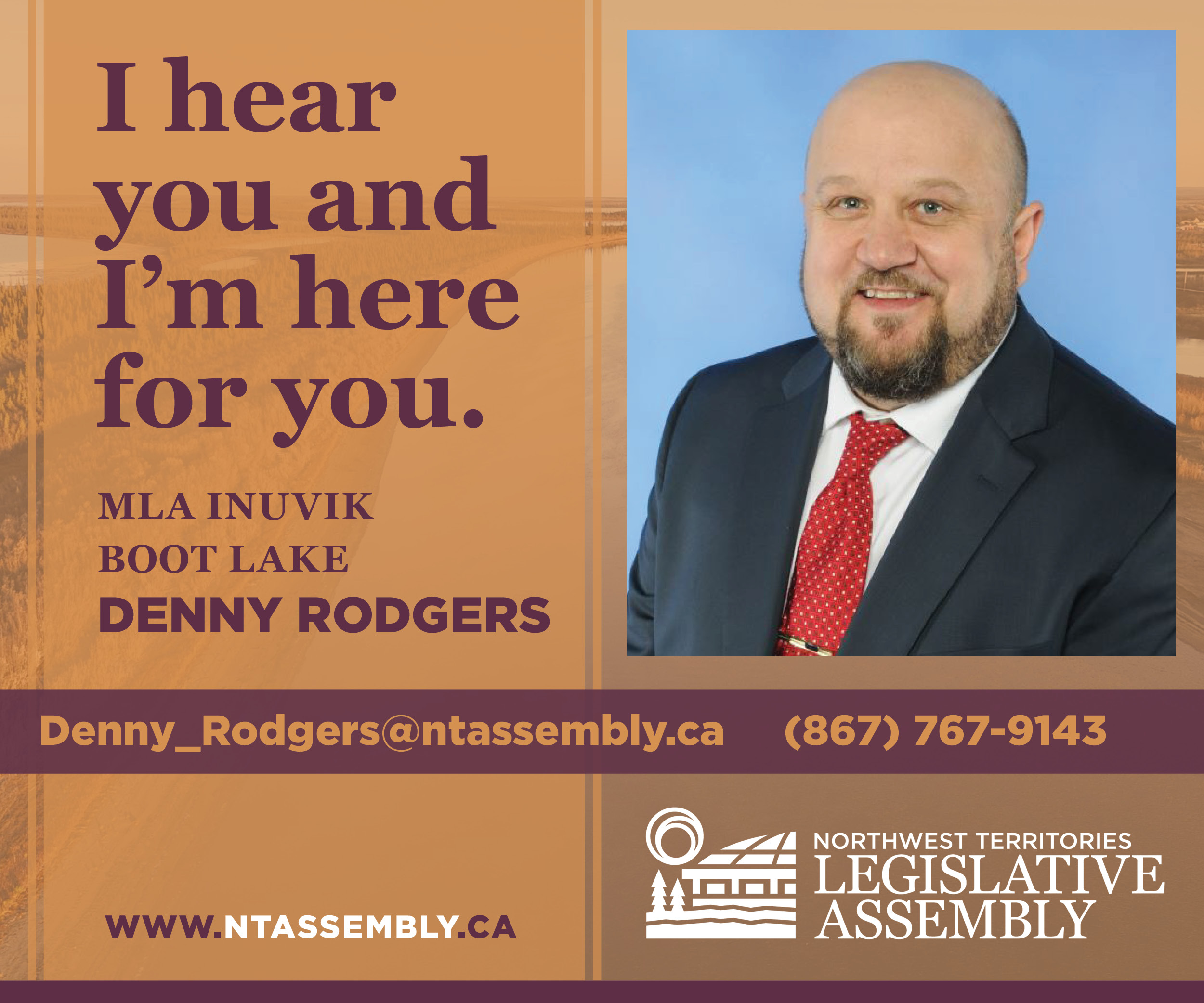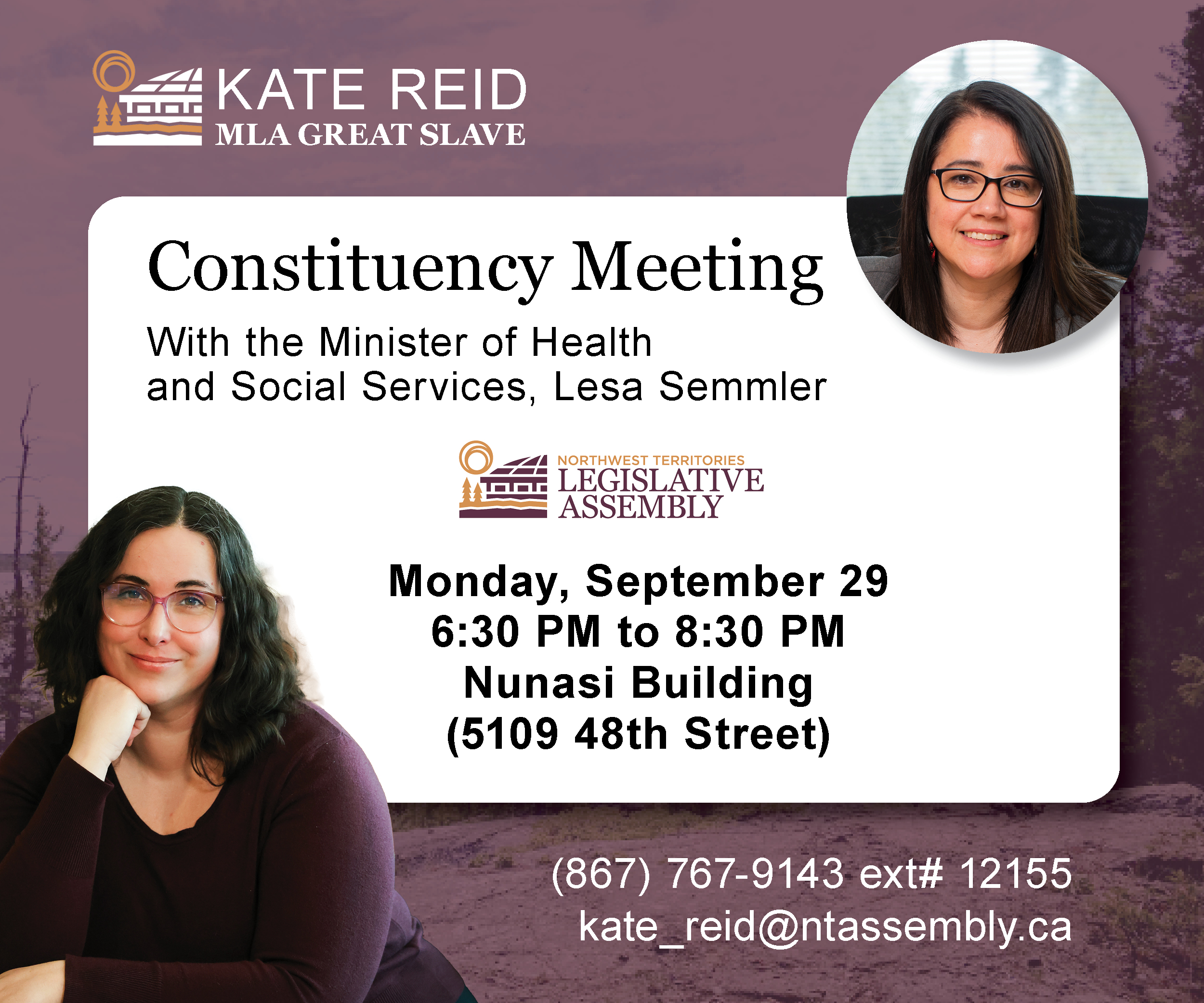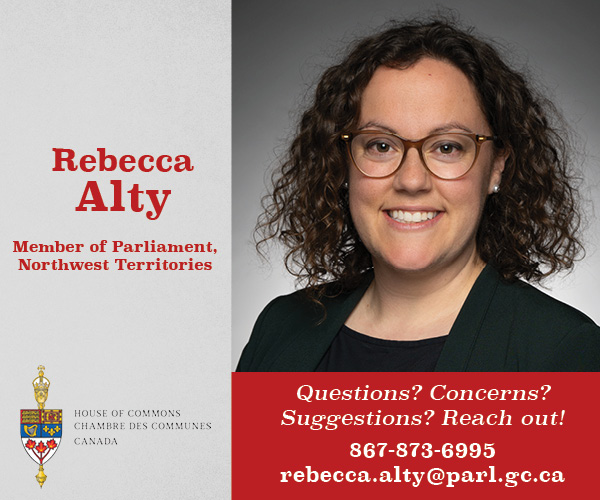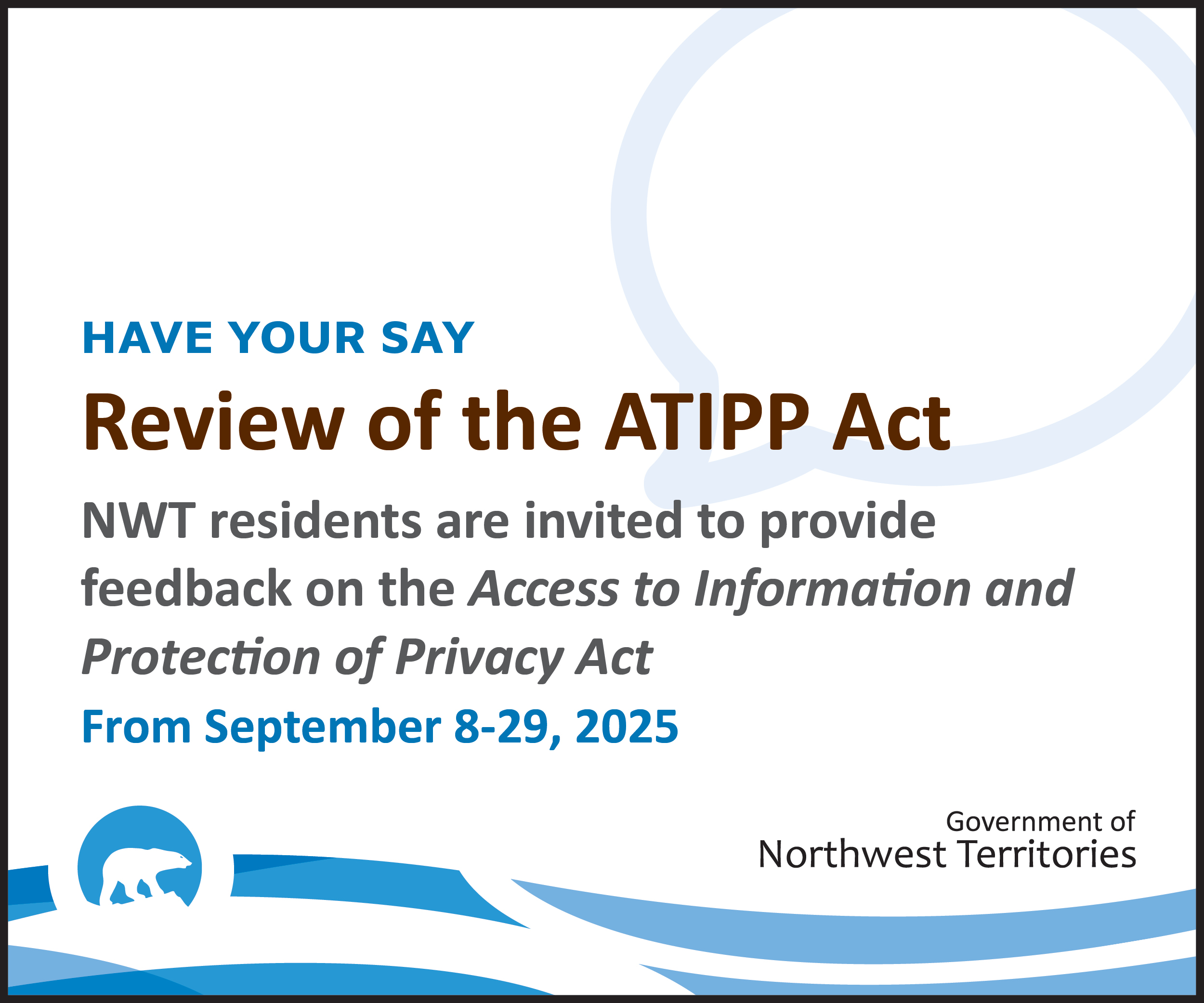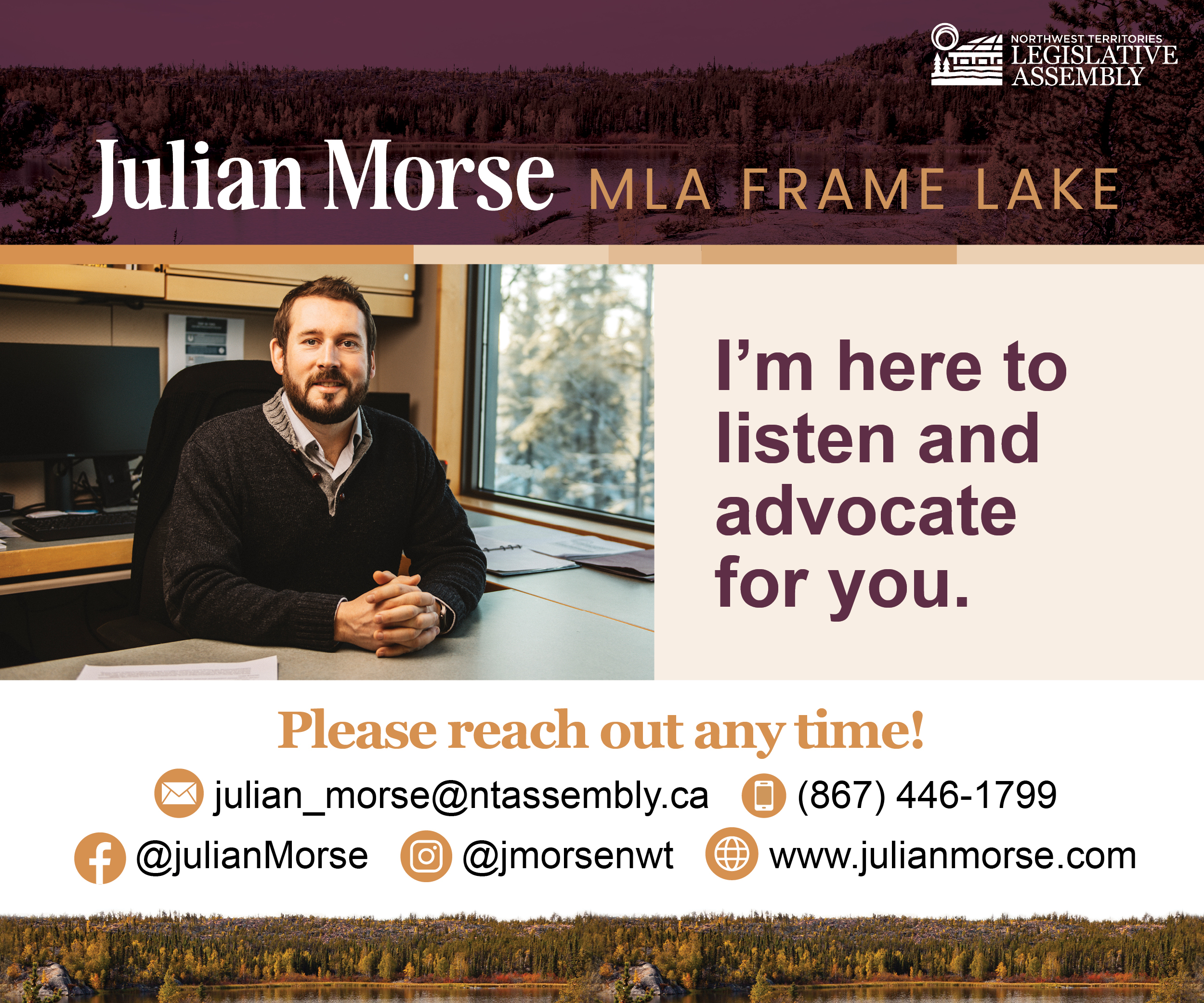An emergency physician at Stanton Territorial Hospital says allowing nurses to form their own bargaining unit would empower them to stay in the NWT and thrive.
“Like physicians, nurses face a system that too often overlooks or it misunderstands the realities of working and living here,” Katherine Breen said, describing nurses as “the heart of healthcare in the North.”
“Nurses deserve the ability to negotiate better contracts and working conditions that reflect the realities and that seek to retain them here.”
Breen, past president of the NWT Medical Association, made the remarks on behalf of herself and the association in support of Bill 26 during a public meeting regarding the proposed legislation earlier this week.
“We all share the same goal. We want the best care possible for the people of the Northwest Territories and this bill offers a practical way forward,” she said.
A committee of MLAs is reviewing the private member’s bill, which proposes amending the NWT’s Public Service Act to allow nurses to form their own bargaining unit.
Yellowknife North MLA Shauna Morgan, who introduced the bill in May, has said it will address the constitutional right of workers to choose who they want to represent them in bargaining.
Currently, the Union of Northern Workers represents nurses and most other unionized NWT government employees in bargaining – save for teachers, who are represented by the Northwest Territories Teachers’ Association.
At Tuesday’s public meeting, UNW president Gayla Thunstrom repeated the union’s opposition to Bill 26. She argued that changes to the Public Service Act should be made through ongoing discussions between the union and NWT government rather than through a private member’s bill.
Thunstrom said the UNW is not against the “possibility of a made-in-NWT labour board that could appropriately address certification or decertification.” She said the union opposes Bill 26, however, as it contains “significant errors and omissions in the legal language that present a danger to nurses and democratic rights.”
The Public Service Alliance of Canada – the UNW’s parent – and the NWT government have also advocated for “a collaborative approach” to amending the Public Service Act.
Josée-Anne Spirito, PSAC’s regional executive vice-president for the North, has said if nurses were to be represented by another bargaining agent, they would have to fight to retain existing terms and conditions in the current collective agreement alongside any improvements in a new collective agreement, with no guarantee that they would be successful.
Sarah-Jayne Dempster, president of the Northern Territories Federation of Labour, said in a separate briefing that allowing a specific group of workers to leave the union would weaken collective bargaining power. She said that would “lead to a fragmentation of union strength, ultimately reducing the protections that collectively workers have fought long and hard to establish.”
Dempster advocated instead for the creation of an independent labour board that would “oversee the administration of union membership rights, resolve disputes and ensure that collective bargaining continues on fair and impartial terms.”
Nurses speak in favour of bill
Tina Drew, a registered nurse at the Yellowknife hospital, said over the past 43 years she has worked as a nurse in nine countries, one Canadian province and two territories.
“This is the only place where I’ve not been in a union where nurses have a meaningful voice in their working conditions or in patient advocacy,” she said at Tuesday’s meeting.
Drew said other jurisdictions in Canada that have nurses’ unions have been successful and won safer staffing levels, patient protections and more resilient public healthcare in bargaining.
“These are not cautionary tales of fragmentation, they are success stories. So why should the nurses in the NWT with Nunavut be the only ones denied that right?” she questioned.
Drew gave the example that when she raised safety concerns about a nurse working a 22-hour shift in October 2022, she said the UNW told her it was unable to advocate for a change that would allow nurses a day of rest prior to being on call for the emergency room. She said that is because a change to one section of the collective agreement would affect all GNWT employees, not just nurses.
Drew said she previously raised the need for a separate bargaining unit for NWT nurses with the former health minister and the UNW in 2021, during the closure of Stanton’s obstetrics unit.
“Let’s be clear, Bill 26 is not about higher pay or special treatment. It’s about voice, fairness and democracy,” Drew said.
“Respect democracy, protect public health and support Bill 26.”
Jacob James Moynes-Keshen, a nursing student at Aurora College, said he was surprised and felt “some shame and embarrassment” when he learned that NWT nurses do not have an independent bargaining unit.
“It is untenable to continue to suggest that the needs of nurses as a unique labour unit can be met by a union which is fundamentally composed of workers of broad stripes, broad colours, whose needs are entirely different from nurses and will always numerically overshadow them,” he said.
Moynes-Keshen said he believes Bill 26 must be passed, describing it as “essential.”
Christian Norwick, a registered nurse in Yellowknife and former UNW Local 11 president at Stanton, told Cabin Radio in an email that he also supports Bill 26.
“It restores our Charter right to self-organize and choose real representation so we can fix problems unique to us – staffing, safety and retention problems,” he wrote.
“Provinces with nurse-led bargaining deliver safe staffing and stronger public systems and more influence on leadership. Many nurses see this as about defending public healthcare, not pay.”
‘This was always going to blow up’
A person with knowledge of the UNW and labour relations, who requested anonymity to discuss the issue due to their employment, told Cabin Radio the union is aware of Charter issues with the NWT Public Service Act.
They said the act violates the Charter by not allowing GNWT employees to choose who represents them in bargaining, adding those employees have little recourse if they feel they have not been fairly represented by the union.
They said nurses in the NWT have long asked for a separate collective agreement.
“This was always going to blow up,” the person said. “It just feels like it’s about time that it did.”
By contrast, the person pointed out that smaller groups represented by the UNW who are not covered by the Public Service Act, such as employees at the City of Yellowknife or Salvation Army, do have the right to choose their union. They said those employees can also file a duty of fair representation complaint with the Canadian Industrial Relations Board.
They said they “fully support” Bill 26 and wish it could be expanded to encompass all GNWT employees, but understand private member’s bills have constraints.
“I can’t believe that there would be anyone against it who doesn’t have sort-of a dog in the fight,” they said.
In a statement to Cabin Radio, PSAC said it is up to the courts to decide whether legislation violates the Charter. The union added that in several jurisdictions with legislated bargaining agents, constitutional challenges have been unsuccessful.
Skin in the game?
The person with knowledge of labour relations also raised concern that a potential consequence of Bill 26 related to union leadership has not been publicly discussed.
They said Thunstrom and Spirito would be unable to hold positions as elected leaders within the UNW and PSAC if NWT nurses decide to leave the union. That is because leaders must be members of the union, they said, and Spirito currently works as a nurse while Thunstrom was previously employed as a nurse.
“I don’t understand how either of them can be coming out making public statements about this without disclosing that,” the person said. “They have so much skin in the game.”
They added that nurses leaving the UNW could also result in the loss of significant membership dues for the union.
Last month – following an earlier briefing on Bill 26 during which Thunstrom spoke about her nursing experience – the College and Association of Nurses of the NWT and Nunavut said in a statement that Thunstrom is not licensed with the organization and is not entitled to practise as a nurse in the two territories.
PSAC said Spirito “has been clear” about her position as nurse and an elected labour leader, while Spirito said she will still have a job as a nurse whenever her elected mandate is over.
Spirito stated to Cabin Radio that PSAC North does not oppose “the idea of nurses having their own bargaining unit or collective agreement.” She said the union is opposed to Bill 26 as it “is poorly written and would put nurses at risk.”
“As a nurse, of course I have a vested interest in this bill because I have a vested interest in the future of nursing in the NWT,” she wrote.
“I am proud to have been elected as the first nurse from the NWT in this position. I was elected by union members to represent the best interests of workers in the North and I will continue to use my voice to advocate for all workers.”
Thunstrom told Cabin Radio she supported the statements by PSAC and Spirito.
“As an elected official, my position in the union has never been a guarantee – I currently serve at the pleasure of the members who elected me to advocate for their rights and protections,” she stated, “and as a passionate union activist I will continue to do so in any capacity I can, regardless of the outcome of this bill.”
Next steps
Bill 26 passed second reading in May with a majority of regular MLAs voting to send it to a committee for an in-depth review.
The committee is now holding public hearings and examining written submissions on the bill from interested parties.
The committee will ultimately write a report outlining its observations and any changes that have been made to the bill.
That report will then be considered by all regular MLAs and members of cabinet, who can suggest and vote on changes to the bill and decide whether it should proceed to a third and final reading.
The bill must pass third reading before it can become law.
Related Articles







